Life
Sign up for our newsletter
We summarize the week's scientific breakthroughs every Thursday.
-
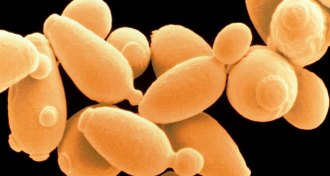 Life
LifeFor yeast life span, calorie restriction may be a wash
A new technique for growing and tracking yeast cells finds caloric restriction doesn’t lengthen life span, though some researchers question the study method.
-
 Neuroscience
NeuroscienceStudy linking narcolepsy to autoimmunity retracted
Data linking disorder to immune cells couldn’t be replicated, scientists say.
By Nathan Seppa -
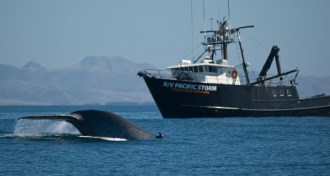 Oceans
OceansWhales and ships don’t mix well
A 15-year study of blue whales off California has found that major shipping lanes cut through feeding grounds.
-
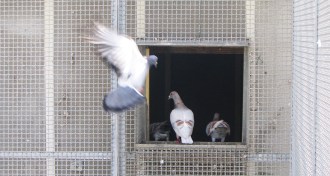 Neuroscience
NeuroscienceHippocampus may help homing pigeons explore
When researchers remove pigeons’ hippocampi, birds fly straighter on early parts of journey home.
-
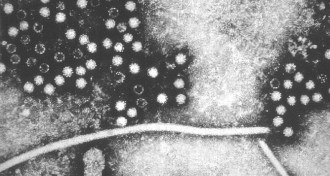 Health & Medicine
Health & MedicineHepatitis E widespread among English blood donors
Screening of 225,000 blood donations reveals a high prevalence of the hepatitis E virus.
-
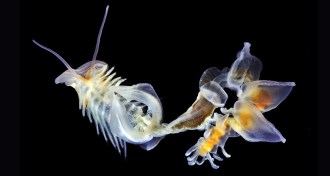 Animals
AnimalsParchment worms are best pinched in the dark
Meek tube-dwelling worms have strange glowing mucus and build papery tubes.
By Susan Milius -
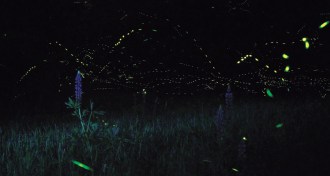 Science & Society
Science & SocietyAn app to track firefly flashings
This summer, you can contribute to citizen science by tracking lightning bugs in your backyard.
-
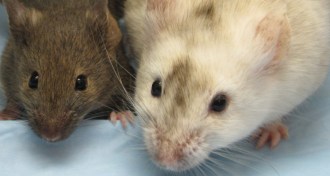 Genetics
GeneticsGene activity change can produce cancer
Scientists have long thought that epigenetic changes, which alter gene activity, can cause cancer. Now they have demonstrated it in a mouse experiment.
-
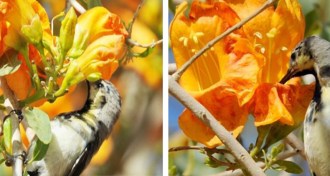 Plants
PlantsThese trees don’t mind getting robbed
Desert teak trees in India produce more fruit after they’ve been visited by nectar robbers.
-
 Health & Medicine
Health & MedicineLong-term Parkinson’s treatment sheds bad rep
Prolonged used of levodopa doesn’t increase the severity of side effects from the Parkinson’s drug, new research shows.
-
 Life
LifeChemical evidence paved way for discovery of early life
The discovery in 1964 of compounds related to chlorophyll in billion-year-old rocks pushed back the timing of life’s origins.
-
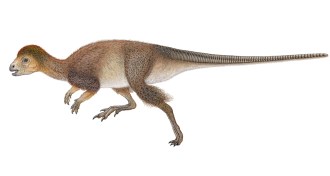 Paleontology
PaleontologyFeathered dinosaurs may have been the rule, not the exception
Newly discovered fossil suggests feathers may have been common among all dinosaur species.
By Meghan Rosen